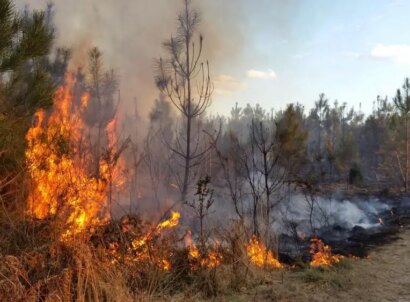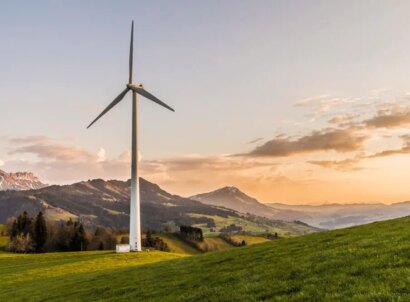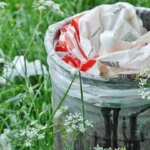Czy zawsze myślałeś o konsekwencjach katastrofy ekologicznej na Mauritiusie? Przeczytaj ten poruszający artykuł, aby dowiedzieć się więcej o dramatycznych skutkach społecznych i środowiskowych, jakie spowodował ten niebezpieczny incydent. Wydarzenia na wyspie Mauritius poruszyły nie tylko serca mieszkańców, ale także społeczność międzynarodową, która obserwuje z dezaprobatą rosnący chaos na tym niesamowitym kawałku lądu. Niezliczone organizacje ekologiczne i ochotnicy starają się teraz ocalić skażoną przyrodę i ratować zagrożone gatunki. Zagłęb się w historię wielkiego nieszczęścia, jakie spadło na ten rajski raj, w którym tętniące życiem laguny i błękitne wody stanowią ośrodek tego malowniczego miejsca. Przeżyj emocje i zobacz, jak wygląda życie po katastrofie ekologicznej, kiedy człowiek staje w obliczu własnych błędów, a natura walczy o przetrwanie. Oczekuje Cię poruszająca lektura, która z pewnością zmieni Twój sposób myślenia na temat ochrony środowiska i odpowiedzialności za nasze własne czyny. Przygotuj się na pełną wrażeń podróż do serca katastrofy na Mauritiusie i dowiedz się, jakie są długotrwałe konsekwencje tego dramatycznego wydarzenia.
1. The catastrophic ecological disaster
Imagine a beautiful paradise island, its turquoise waters and vibrant marine life. This is Mauritius, a haven of biodiversity and natural wonders. But then, a catastrophic ecological disaster struck. The island was hit by a massive oil spill, caused by a grounded ship. The pristine beaches and coral reefs were quickly contaminated with thick black oil, suffocating the delicate ecosystems. The consequences were devastating.
Dark clouds hanging over Mauritius
The once vibrant and colorful landscape of Mauritius is now covered in a dark cloud of pollution. The oil spill has rendered the crystal-clear waters into a murky mess, killing fish and marine animals. The unique bird species that inhabited the island, such as the endangered Mauritius kestrel and pink pigeon, are now at risk of extinction. The local communities, heavily reliant on tourism and fishing, have been hit hard by this disaster. Their livelihoods are now in jeopardy.
2. The social impact
The social impact of this ecological disaster cannot be underestimated. The local communities, already facing economic challenges, are now struggling to cope with the aftermath of the oil spill. The tourism industry, which was once the lifeblood of the island, has come to a grinding halt. Hotels are empty, restaurants are closed, and locals are left unemployed. The once-thriving coastal villages are now desolate and devoid of life.
A cry for help
The people of Mauritius are crying out for help. They are pleading for international assistance to clean up the oil spill and restore their beloved island. The volunteers and environmental organizations are working tirelessly to clean up the contaminated areas, but the scale of the disaster is overwhelming. The social fabric of the island is unraveling, as communities struggle to come to terms with the loss of their way of life.
3. The environmental consequences
The environmental consequences of the oil spill are catastrophic. The oil has seeped into the coral reefs, suffocating the delicate organisms that make up these ecosystems. The long-term damage to marine life is immeasurable. The oil-covered beaches are also a death trap for turtles, who mistake the oil for food. The once-thriving sea turtle populations are now in danger of decline.
An uncertain future
The future of Mauritius’s ecosystems hangs in the balance. The long-term effects of the oil spill are yet to be fully understood, but it is clear that the damage will have far-reaching consequences. The restoration of the coral reefs will take years, if not decades. The survival of endangered species, such as the Mauritius kestrel and pink pigeon, is also uncertain. The ecological balance of the island has been severely disrupted, and it will take a collective effort to rebuild and restore it.
4. A wake-up call for the world
The ecological disaster in Mauritius should serve as a wake-up call for the world. It highlights the devastating impact that human actions can have on the environment. The oil spill was not an accident; it was the result of negligence and lack of proper regulation. It is a reminder that we cannot continue to exploit the Earth’s resources without consequences.
The time for action is now
Mauritius is a stark reminder of the urgent need to protect and preserve our planet. It is a call to action for governments, industries, and individuals to take responsibility for their actions. We must prioritize sustainable practices and ensure that such disasters are prevented in the future. The time for action is now, before it’s too late.
Mauritius: A Paradise Lost – A Catastrophic Ecological Wake-Up Call
Mauritius, once a vibrant paradise, has been struck by a catastrophic ecological disaster. The grounded ship and subsequent oil spill have devastated the island’s pristine beaches, coral reefs, and vibrant marine life. This disaster has not only caused irreparable damage to the environment but also shattered the livelihoods of local communities heavily reliant on tourism and fishing. The social and economic impacts are devastating.
The cries for international assistance echo through the desolate coastal villages, as the people of Mauritius struggle to cope with the aftermath of the oil spill. The tourism industry has come to a grinding halt, leaving hotels empty, restaurants closed, and locals unemployed. The island’s social fabric is unraveling before our eyes.
The environmental consequences are equally catastrophic. The oil has seeped into the delicate coral reefs, suffocating the ecosystem’s organisms and endangering the survival of marine life. Turtles, mistaking the oil for food, face a fatal fate on the oil-covered beaches. The future of Mauritius’s ecosystems hangs in the balance, with the long-term impact still unknown. The ecological balance of the island has been severely disrupted, and it will take a collective effort to rebuild and restore it.
This disaster should serve as a wake-up call for the world. It is a stark reminder of the devastating impact human negligence and lack of proper regulation can have on the environment. We must take immediate responsibility for our actions and prioritize sustainable practices to prevent such tragedies in the future. The time for action is now, before we lose more of Earth’s precious paradises.









